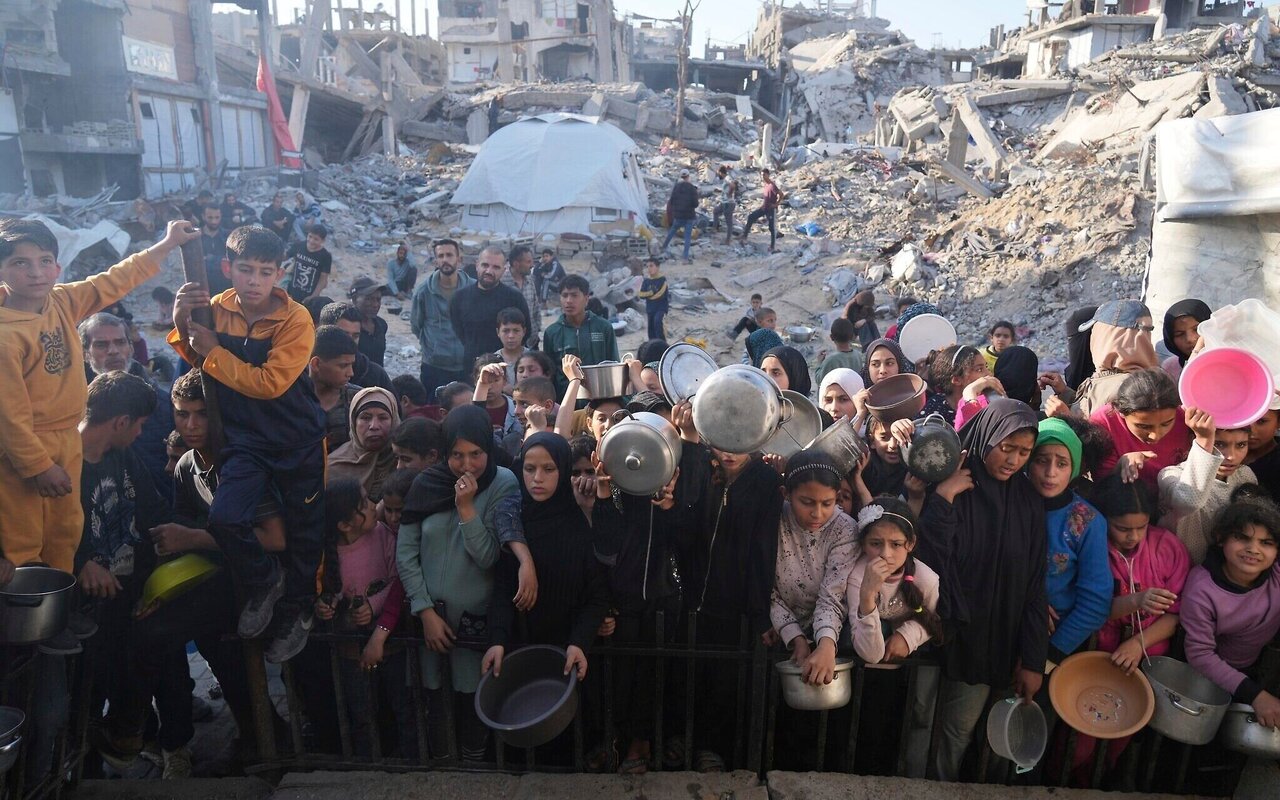Cruel blockade worsens Gaza crisis

TEHRAN – Israel’s ongoing blockade of Gaza flagrantly violates international law and amounts to continuous collective punishment of Palestinians.
Even amid a fragile ceasefire, the Israeli occupation regime is intentionally restricting aid to Gaza, keeping the Rafah border crossing closed, and deliberately subjecting the civilian population to extreme deprivation.
United Nations officials warn that this deliberate strategy is not only violating the truce but also international law, creating a humanitarian catastrophe that affects every aspect of life in the territory after two years of U.S.-backed genocidal war.
Farhan Haq, deputy spokesperson for the UN secretary-general, told Al Jazeera that Israel has not permitted 600 UN aid trucks to enter Gaza on any single day since the ceasefire began. “We want the Israeli authorities to allow in more trucks at more crossing points; we’ve made that clear,” Haq said.
Yet the occupation regime continues to limit access, leaving more than 2.2 million Palestinians trapped in worsening conditions.
Video gathered by Reuters shows Israeli settlers blocking aid trucks near the Karem Abu Salem crossing, an Israeli military-controlled gateway where limited aid, described as “a drop in the ocean,” is allowed to enter.
Meanwhile, the Rafah crossing, Gaza’s main passage to Egypt and the outside world, remains closed by the Israeli regime. This is preventing essential medical equipment, food, and fuel from entering and stopping critically ill patients from leaving. The truce agreement stipulated that the Rafah border crossing would fully open in the first phase.
Humanitarian organizations warn that these restrictions amount to collective punishment, violating international law. The consequences are severe. Hospitals operate with minimal power and dwindling supplies, forcing doctors to perform surgeries without anesthesia and sterilize instruments under unsafe conditions.
Overcrowded shelters and destroyed sanitation systems fuel outbreaks of diseases such as respiratory infections, worsened by the use of white phosphorus bombs by Israeli occupation forces during the genocide. The World Health Organization has previously warned that Gaza’s health system is “on the verge of total collapse.”
In northern Gaza, famine conditions persist, and starvation has already claimed lives, with thousands more at risk as aid remains blocked. Limited deliveries prevent the transport of flour, infant formula, and other basic foodstuffs. Experts estimate that more than 1,000 trucks are now needed daily, well beyond the pre-genocide average, to meet urgent needs.
Beyond health and food, other sectors of Gaza society are similarly crippled. Schools and universities remain closed or damaged, depriving children of education and social development. Water and sanitation systems are failing due to blocked fuel and repair materials, worsening disease risks. Electricity shortages affect hospitals, water pumps, refrigeration, and heating as winter approaches.
On Friday, at least two children were severely injured by unexploded munitions in northern Gaza City.
The blockade has also decimated the economy. Prices for basic food products are soaring, and families are struggling to survive. Agriculture and fishing, critical for food security in Gaza remain paralyzed.
Human rights advocates assert that the occupation regime’s measures are deliberate, violating both the truce and international law, including prohibitions against collective punishment. By controlling aid access, the Zionist regime is intentionally subjecting Gaza’s population to extreme deprivation and suffering, preventing recovery and survival.
Living conditions in southern Gaza are equally dire, according to Doctors Without Borders (MSF). In a written statement, the organization said widespread displacement, coupled with the destruction of civilian infrastructure and the health system by Israeli occupation forces, has created a “perfect storm” for disease and illness.
“Israeli (regime) authorities should immediately allow a massive scale-up of humanitarian assistance to flow freely into Gaza,” MSF emphasized, adding the regime’s “two-year-long genocidal campaign” has left Palestinians “traumatized, injured, and dangerously exposed to the elements as winter approaches.”
MSF also warned that without urgent improvements in water, sanitation, shelter, and nutrition, more lives will be lost to entirely preventable causes.
The ongoing Israeli blockade threatens not only the immediate survival of a population in which over half are children, but also the long-term recovery and dignity of Palestinians.
Leave a Comment